|

HOME |
ABOUT | INDEX |
NEWS |
FACEBOOK |
CONTACT
POLYAMORY
Thrupple | Non-Monogamy | Open Relationship


Relationships|Couples
Marriage Equality
Pansexual|Polysexual
Romantic Orientation
Monogamy|Fidelity
Friends With Benefits

What is Polyamory?
Polyamory is the practice of, or desire for, intimate
relationships
where individuals may have more than one
partner, with the knowledge and consent of all partners.
It involves
maintaining multiple sexual and/or romantic
relationships simultaneously.
It has been described as "consensual, ethical, and
responsible non-monogamy."
The term should not be
confused with polysexuality, which is an attraction towards multiple
genders or sexes. Members of the polyamory
community refer to themselves by the shorthand term,
"poly."


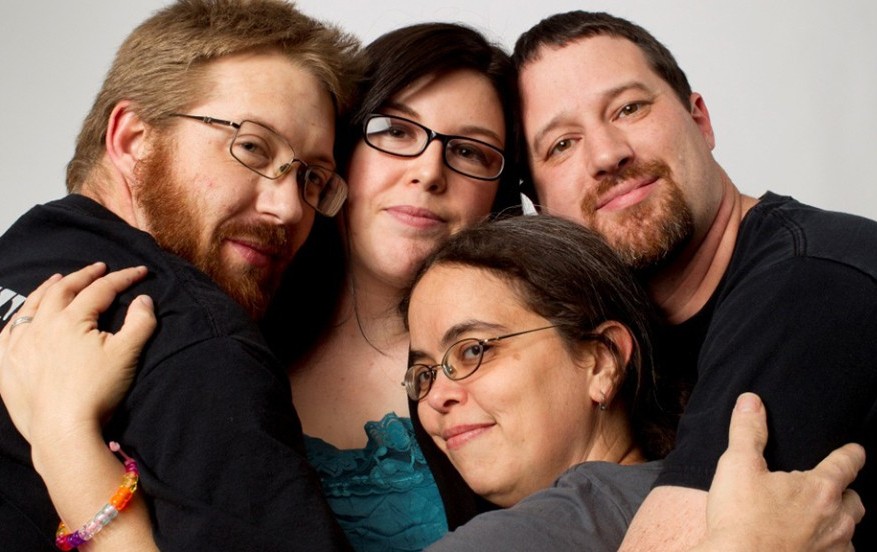
Wikipedia: Polyamory
Showtime Series: Polyamory
Video: Polyamory Q&A
Reasons To Try Dating A
Couple
NBC: What Open
Relationships Have to Offer
Willow Smith:
Explains Why She Prefers Polyamory Relationships
Meet a Polyamorous Thrupple
Info: Monogamy
The term "polyamorous" can refer to the nature of a
person's relationships at some point in time or to a
philosophy or relationship orientation (much like gender
or sexual orientation). The word is sometimes used in a
broader sense, as an umbrella term that covers various
forms of multiple relationships, or forms of sexual or
romantic relationships that are not sexually exclusive.
Polyamorous arrangements are varied, reflecting the
choices and philosophies of the individuals involved,
though there is disagreement on how broadly the concept
of polyamory applies. An emphasis on ethics, honesty,
and transparency all around is widely regarded as the
crucial defining characteristic. As of July 2009, it was
estimated that more than 500,000 polyamorous
relationships existed in the United States.
Polyamorous people practice "abundant love," the belief
or philosophy that it is possible to love more than one
person at the same time.
People who identify as polyamorous typically reject the
view that sexual and relational exclusivity are
necessary for deep, committed, long-term loving
relationships. Those who are open to, or emotionally
suited for, polyamory may embark on a polyamorous
relationship when single or already in a monogamous or
open relationship. Sex is not necessarily a primary
focus in polyamorous relationships, which commonly
consist of people seeking to build long-term
relationships with more than one person on mutually
agreeable grounds, with sex as only one aspect of their
relationships. In practice, polyamorous relationships
are highly varied and individualized according to those
participating. For many, such relationships are ideally
built upon values of trust, loyalty, and the negotiation
of boundaries, as well as overcoming jealousy,
possessiveness, and the rejection of restrictive
cultural standards.

Polyamory and Triads: Finding a Third
Video Interview: Answering Your Questions About
Polyamory (1)
More Than Two: Learning the Poly Lingo
Interview: Perfect Polyamorous Relationship
Video Discussion: What About Polyamory?
Willow Smith
Opens Up About Being Polyamorous
Huffington Post: Spark Chaser or Long Burner
Three Way Relationship: Beautiful Thing

Polyamory
Explained
According to the Polyamory Society, Polyamory is defined
as, "the non-possessive, honest, responsible and ethical
philosophy and practice of loving multiple people
simultaneously." Polyamory emphasizes consciously
choosing how many partners one wishes to be involved
with rather than accepting social norms which dictate
loving only one person at a time. Polyamory is an
umbrella term which integrates traditional multi-partner
relationship terms with more evolved egalitarian terms.
Polyamory embraces sexual equality and all sexual
orientations towards an expanded circle of spousal
intimacy and love. Polyamory is from the root words "poly"
meaning many and "amour" meaning love hence "many loves"
or "polyamory." Of course, love itself is a rather
ambiguous term, but most polyamorous people seem to define it as a
serious, intimate, romantic, or less stable,
affectionate bond which a person has with another person
or group of persons. This bond usually, though not
necessarily always, involves sex.
Sexualove or eromance
are other words which have been coined to describe this
kind of love. "Responsible, ethical or intentional
non-monogamy" is another popular description used to
explain polyamory.
Creative terms used in the poly community include
throuple, threelationship, or polycule.


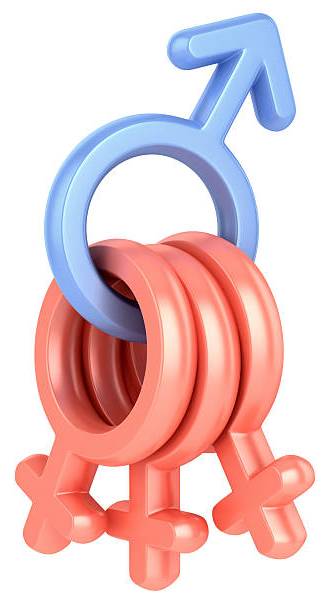
BBC: Polyamorous Relationships May Be the Future of Love
Interview with Polyamorous Thrupple
Research: Health and
Wellness of Consensual Non-Monogamy
Video: How to Have an Open Relationship
Meet the Married Polyamorous Throuple
Questions People In Polyamorous Relationships Are Sick
Of Hearing
Exploring Modern
Polyamory
Types of Polyamory
Poly Definitions
Polyamory (Poly) -
Umbrella term for various forms of
non-monogamous, multi-partner relationships, or
non-exclusive sexual or romantic relationships.
Intimate
relationships with more than one partner, with the
informed consent of all partners involved. It is
described as consensual, ethical, and responsible
non-monogamy. People who identify as polyamorous believe
in an open relationship with a conscious management of
jealousy. They reject the view that sexual and
relational exclusivity are necessary for deep,
committed, long-term loving relationships.
Polyfidelity (Polyfi) - Form of non-monogamy, an
intimate relationship structure where all members are
considered equal partners and agree to restrict sexual
activity to only other members of the group.
Polyfidelity describes the ethical behavior or
faithfulness of a polyamorous relationship.
Metamour - In a polyamorous relationship, a metamour is
your partner's other partner. A metamour is someone who
is your partner's partner, but with whom you have no
romantic relationship. This can be your partner's other
boyfriend or girlfriend or your partner's spouse. Your
partner's other partners, that you are not romantically
or sexually involved with. My girl/boyfriend's other
boy/girlfriends. A partner has several other partners.
Each partner of a partner is a metamour.


Reasons To Try Dating A Couple
Meet the Married Polyamorous Throuple
NY Judge Rules Polyamorous Relationships Deserve Legal
Protection
More Than Two:
Polyamory FAQ
Huff Post: Inside Look at Open Relationships
Video: Signs Polyamory is Right for You
Research: Health and
Wellness of Consensual Non-Monogamy
I Went To A Nudist Swingers Resort Without My
Girlfriend: Here's What Happened
NM - Non-monogamy. Non-mongogamous melationship.
Throuple (Thrupple) - Most popular term used to describe
an intimate relationship consisting of more than a
couple (more than two partners). A throuple is three or
more members who are romantically involved with each
other.
Polycule - Connected network of people in non-monogamous
relationships. The term apparently likens such a network
to a model of a chemical molecule, which uses lines,
circular shapes, or symbols to indicate bonds between
atoms.
Constellation - Arrangement of members of
a polyamorous relationship:
tribe, triad,
thrupple, throuple, troika,
delta, quad, vee.
Unicorn
- Sexually adventurous single bisexual female who lives
with and dates a male/female couple. Slang for a woman who joins a heterosexual
couple for a threesome.
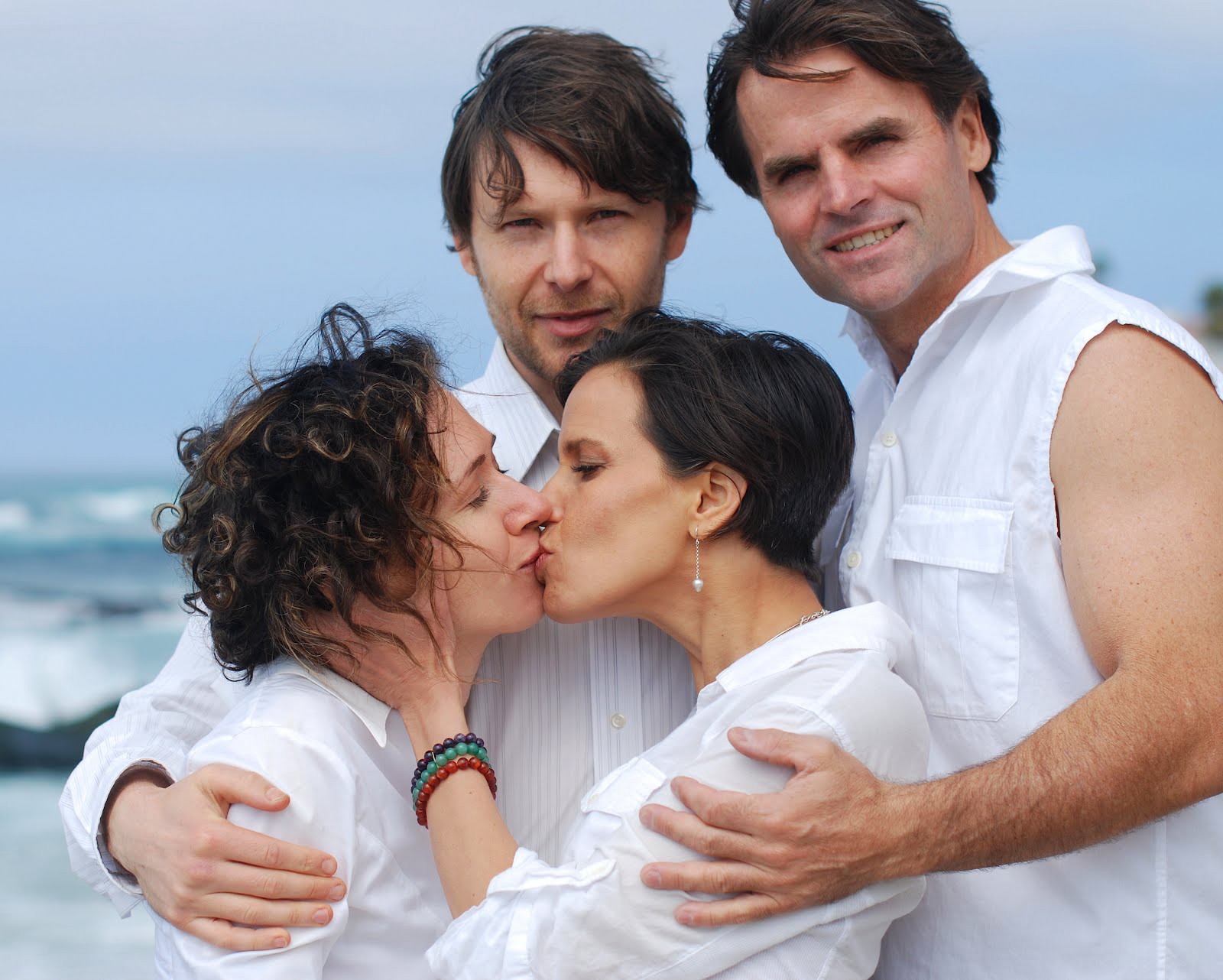

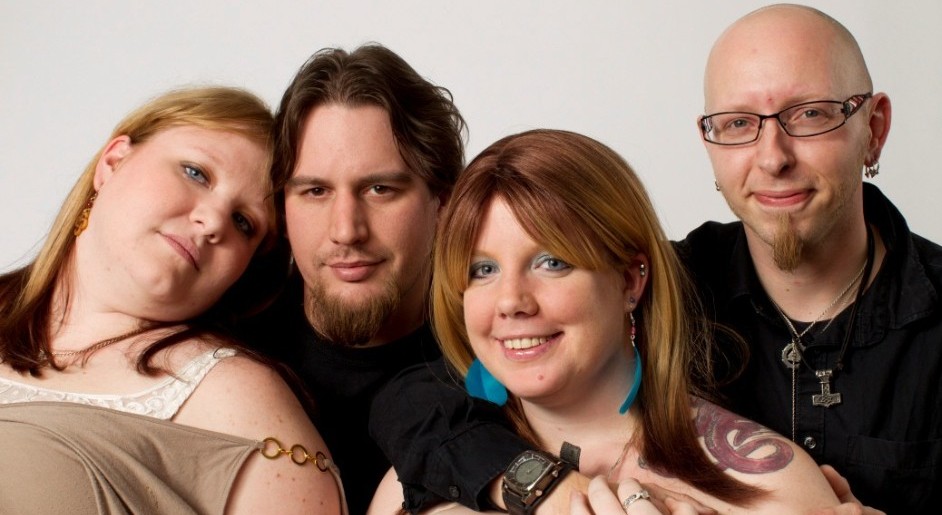
FAQ: Love More
Reasons To Try Dating A Couple
Huff Post: Inside Look at Open Relationships
Bustle: Poly Terms You Should Know
More Than Two: Poly Glossary
Willow Smith Reveals That She is Polyamorous
CNN: When Three Isn't a Crowd
The Atlantic: Multiple Lovers Without Jealousy
Video: Signs Polyamory is Right for You
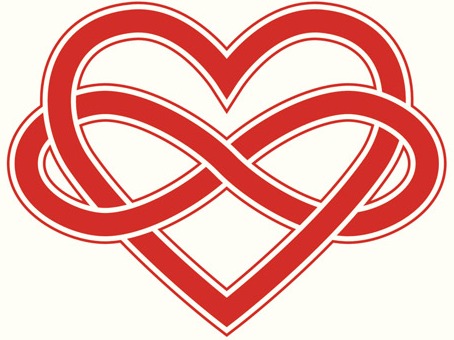
Poly Books
--Ethical Slut: Practical Guide to Polyamory, Open
Relationships & Other Adventures by Dossie Easton
--More Than Two: Practical Guide to Ethical Polyamory by
Franklin Veaux
--Opening Up: Guide to Creating & Sustaining Open
Relationships by Tristan Taormino
Poly
Films
--Monogamish
(Documentary Film, 2014)
Director: Tao Ruspoli. Writers: Tao Ruspoli, Mark
Wrathall. Stars: Stephanie Coontz, Tao Ruspoli,
Christopher Ryan.
IMDB:
Monogamish
Monogamish: The Film
--The Unicorn (Independent Film, 2018)
Director: Robert
Schwartzman. Writers: Will Elliott, Kirk C.
Johnson. Stars: Lauren Lapkus, Nicholas Rutherford, Lucy
Hale.
IMDB:
The Unicorn
The Unicorn: The Film

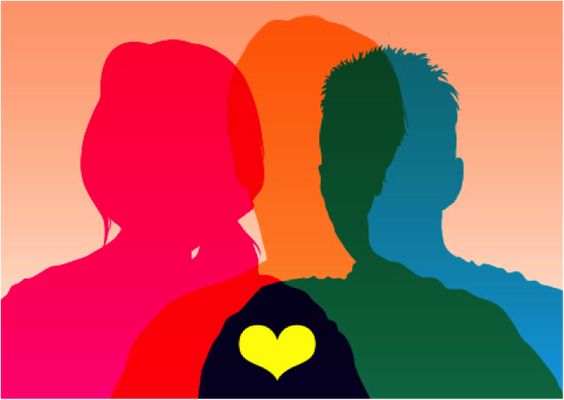

More Than Two: Polyamory Myths
If You're Thinking About an Open Marriage, Consider This
First
Interview: Perfect Polyamorous Relationship
NBC: What Open
Relationships Have to Offer
Types of Polyamory
TED Talk: Rethinking Infidelity
Willow Smith:
Explains Why She Prefers Polyamory Relationships
I Went To A Nudist Swingers Resort Without My
Girlfriend: Here's What Happened
Poly
Arrangements
Members of
a polyamorous relationship describe their arrangement as
a constellation. That constellation may be more
specifically defined as a triad, delta, quad, vee, or
simply the letter "N." You might also hear the
terms thrupple, trouple or troika. When describing a
polyamorous network, terms like tribe, molecule, or
polycule are used.
Typically,
an existing couple
seeks out a "third" to join their relationship.
This third
member, usually a woman, is sometimes called an HBB (hot
bi babe). Often referred to as a "unicorn," such a woman
would love both the man and woman in a pre-existing dyad
equally and would be sexual with both of them.
However,
there is a great deal of variety in polyamorous
relationships. A polycule might include three or even
four (or more) partners. A polycule might consist
entirely of men (gay) or entirely of women (lesbian). It
might be a mix of gay, lesbian, and bisexual members or
a mix of cisgender and queergender members.


Willow Smith Reveals That She is Polyamorous
CNN: When Three Isn't
a Crowd
Glossary of Polyamory Terms
Video Chat: Should You Be Polyamorous?
15 Honest Reasons Couples Choose to be Polyamorous
Meet a Polyamorous Thrupple
I Am in a Polyamorous Relationship
Interview with Polyamorous Thrupple
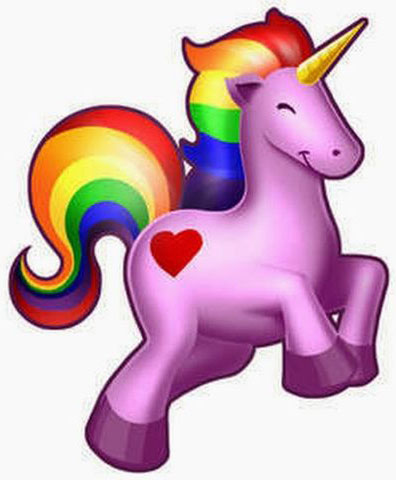
Unicorn
Being someone's unicorn
means you are someone's fantasy. The unicorn is
described as unattainable and perfect.
In the polyamory world, a
unicorn is a young, single, sane, sexually adventurous,
healthy bisexual female who wants desperately to live
with and love a male/female couple. A unicorn,
therefore, is slang for a woman who joins a heterosexual
couple for a threesome.
Typically,
the term "unicorn" is used to describe a bisexual person
(usually though not always female) who is willing to
join an existing couple, often with the presumption that
this person will date and become sexually involved with
both members of that couple. The unicorn will be the
girlfriend to the couple. The couple is usually
considered a primary relationship, while the girlfriend
will be a secondary partner to both.
There is humor in the
term because it can be difficult to find such an elusive
third member. They are like a mythical creature that
doesn't exist. The idea is that there are
disproportionately more unicorn hunters than unicorns
themselves.
Why Can't We Find a Third?
Confessions of
a Real Life Unicorn
Unicorn Hunting
Perfect Polyamorous Thruple
I am a Unicorn in a Three-Person Relationship

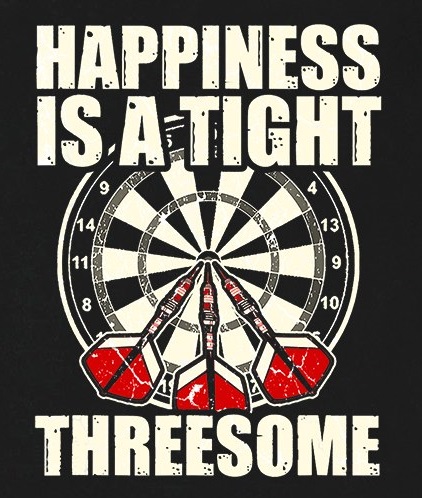

Polyfidelity
A polyamorous relationship isn’t about sex. It’s about
building a romantic relationship with more than one
person at a time. Some poly relationships, called
“polyfidelity” relationships, have rules not much
different from a traditional monogamous relationship,
only there are more than two people involved. A polyfidelitous triad
(or constellation), for example, may have three people
involved, with one person sexually active with the other
two, or even with all three people sexually involved
with one another. However, nobody in the relationship
may take an “outside” lover, just as neither partner in
a monogamous relationship is allowed to have an outside
lover. If you do, that is considered cheating. Cheating, if anything,
is a more serious offense in a polyfidelity relationship
than in a monogamous relationship, because if you cheat,
you are betraying more than one person’s trust.

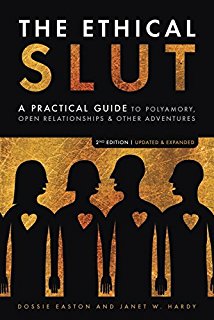

Other polyamorous relationships may permit the people
involved to have “outside” lovers under certain
circumstances, often, for example, only if the outside
lover is approved beforehand by everyone involved, and
only if the outside lover knows the nature of the
relationship.
The individual relationships within a polyamorous group
may be very complex, as well. In many cases, there may
be one “primary” couple (a husband and wife, for example).
Either or both of those people may have outside lovers,
but those relationships are “secondary” in the sense
that they involve less involvement in the partners’
day-to-day lives than, say, a marriage does.
[Source: More Than Two]
Research: Health and
Wellness of Consensual Non-Monogamy
Exploring Modern Polyamory
Polyamory and Triads: Finding a Third
Willow Smith
Opens Up About Being Polyamorous
Info: Monogamy
Interview: Perfect Polyamorous Relationship
Unicorns Rule
Types of Polyamory
Video Interview: Answering Your Questions About
Polyamory (2)
I Went To A Nudist Swingers Resort Without My
Girlfriend: Here's What Happened
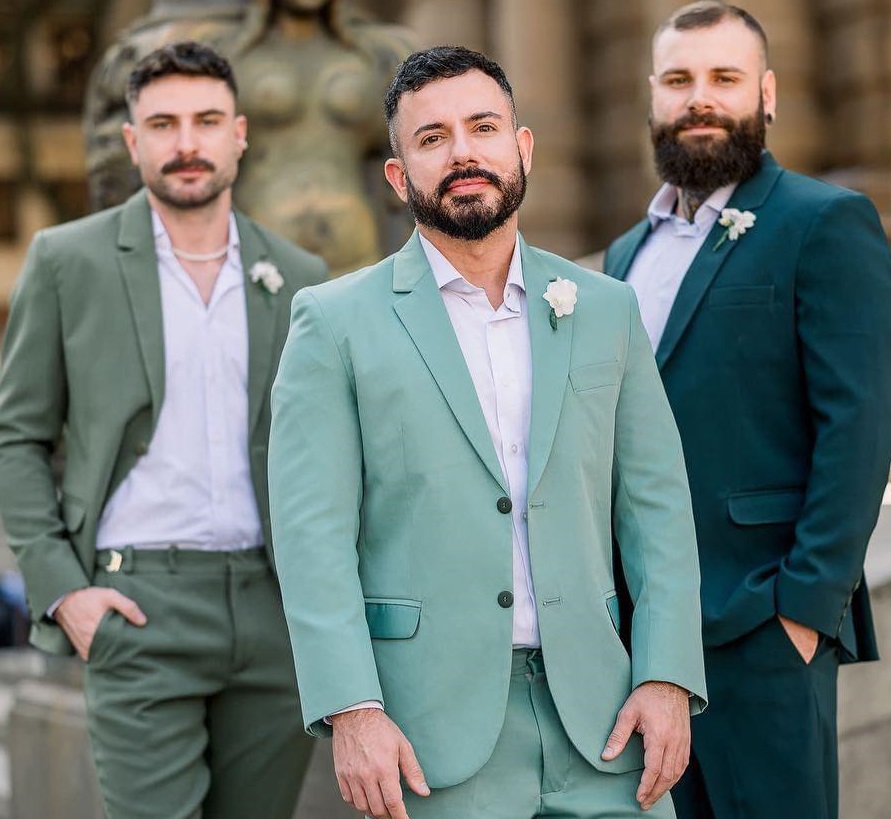

Glossary of Polyamory Terms
NBC: What Open
Relationships Have to Offer
I Am in a Polyamorous Relationship
8 Signs Polyamory is Right for You
Psychology Today: 7 Forms of Non-Monogamy
Willow Smith:
Explains Why She Prefers Polyamory Relationships
Bustle: Poly Terms You Should Know
More Than Two: Poly Glossary
Video: Should You Be Polyamorous?
Polyamory Society
More Than Two: Polyamory Myths
15 Honest Reasons Couples Choose to be Polyamorous
Menage a Trois
Literally
translated from French, "menage a trois" means
'house of
three.' It is sexual activity involving three people.
It is a romantic threesome, triad, throuple, or thrupple. It is a relationship in which all three
people involved live together. It is a relationship composed of
three people. It is a union or group of three. It is a relationship in
which each of the three people is sexually and
emotionally involved with all the other members.
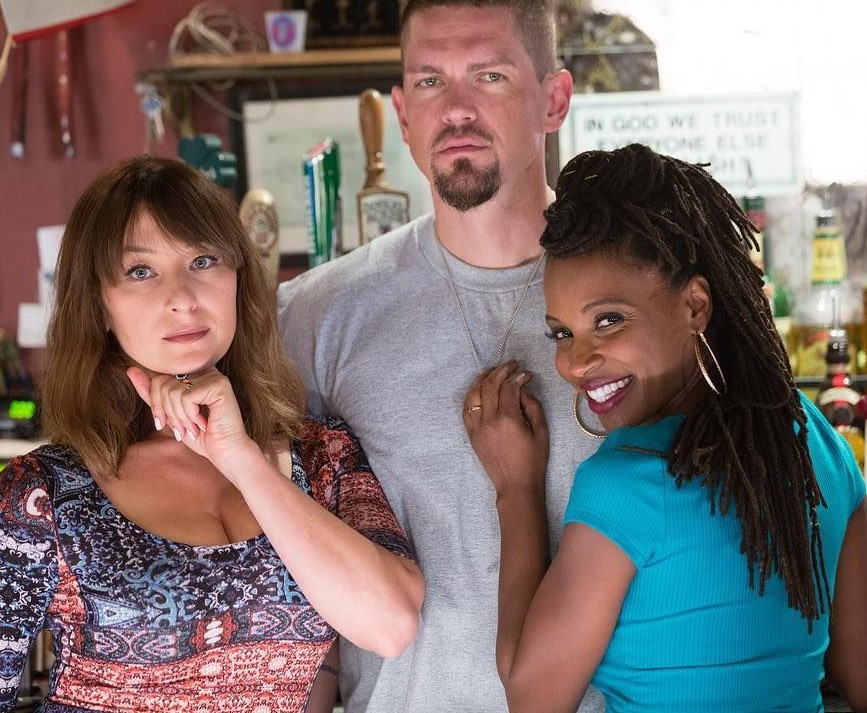

Wikipedia: Polyamory
Showtime Series: Polyamory
Meet a Polyamorous Thrupple
Unicorn Hunting
Meet the Married Polyamorous Throuple
Questions People In Polyamorous Relationships Are Sick
Of Hearing
Reasons To Try Dating A Couple
Willow Smith Reveals That She is Polyamorous
Interview with Polyamorous Thrupple
Swinging, Free Love, Cheating, or Polygamy?
So polyamory is like swinging? Not exactly. Swinging
has a different focus. Swingers focus on recreational
sex, though friendships and deeper bonds may develop.
With polyamory, deep relationships are the focus, though
the sex is often fun.
So, you have another partner on the side? No. That is
something different as well. The technical term for that
is “cheating.”
The thing that defines a polyamorous relationship is
that everyone involved knows about, and agrees to,
everyone else’s involvement.

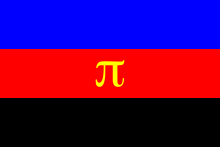
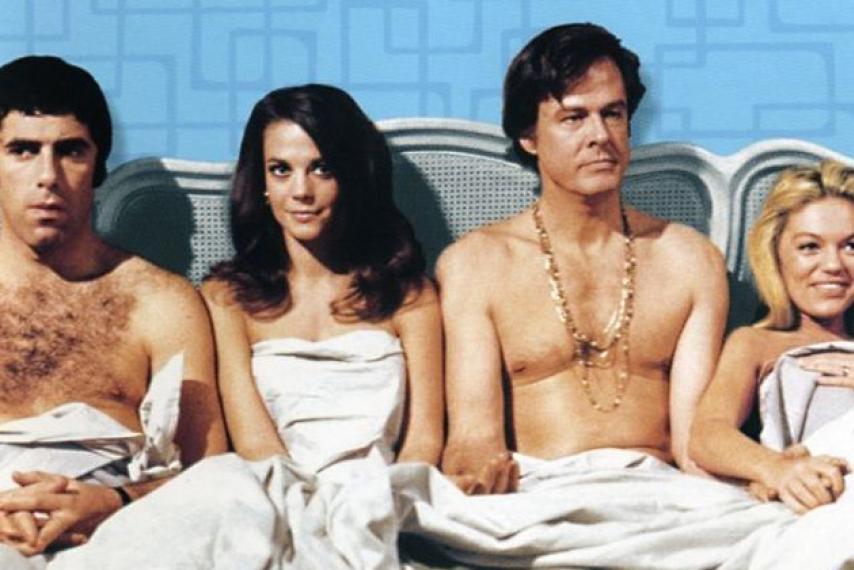
What's the Difference: Polyamory and Polygamy
Polygamy, Polyamory, Polygyny, Polyandry, and More
Video Chat: Polyamory Questions and Answers
More Than Two: Learning the Poly Lingo
Questions People In Polyamorous Relationships Are Sick
Of Hearing
Willow Smith Reveals That She is Polyamorous
Interview: Perfect Polyamorous Relationship
Jessica O'Reilly TED Talk: Monogamish and New Rules of
Marriage
Three Way Relationship: Beautiful Thing
I Went To A Nudist Swingers Resort Without My
Girlfriend: Here's What Happened
If you are married, and you have a girlfriend that your
wife doesn’t know about, or that your wife suspects but
isn’t sure about, or that your wife knows about but
isn’t happy with, you’re not poly, you’re cheating.
Similarly, if you’re banging the milkman while your
husband is out of town, you’re not poly, you’re
cheating.
Polyamory is defined by informed consent of all the
participants. Without it, it ain’t poly. If you can’t
invite your lover over to Thanksgiving dinner with the
rest of your family because you don’t want anyone to
know what you’re doing, it probably ain’t poly.
Didn’t this whole “free love” thing die out in the
’60s? Many folks remember that movie about free love,
"Bob & Carol & Ted & Alice." In truth, "free love"
never really existed, even back then. But that’s
irrelevant. Polyamory isn’t free love. All these
different flavors of polyamory have their own dynamic,
but ultimately, they are all about building
relationships, not about sex.
Okay, so they are about sex as well. After all, most
romantic relationships do involve sex, and poly is about
romantic relationships. (Not for everybody, of course.
There are folks who have romantic relationships without
sex. But often, for many of us, romance does include
some element of sex.) But the point is, it isn’t just
the sex. And the idea of polyamory predates the ’60s,
anyway. In fact, it’s at least as old as human history.
Examples of non-monogamous relationships can be found in
many places at any time throughout history.



Glossary of Polyamory Terms
NBC: What Open
Relationships Have to Offer
I Am in a Polyamorous Relationship
8 Signs Polyamory is Right for You
Psychology Today: 7 Forms of Non-Monogamy
Willow Smith:
Explains Why She Prefers Polyamory Relationships
Bustle: Poly Terms You Should Know
More Than Two: Poly Glossary
Isn’t this all some sexist, misogynistic, male-dominated
Fundamentalist Mormon thing? No. The image that many
people have in their heads, of one man with many women
(as in the HBO series, "Big Love") is technically “polygyny.”
Polygyny (from the Greek poly meaning many
+ gynos meaning woman) is the form of
polygamy where a man can have more than one female
partner, but women are not allowed to have more than one
male partner.
In societies where polygyny is practiced, women are
usually seen as little more than property. Since people
have this mistaken notion of polyamory, it’s easy to
understand why they think “polyamory” means “disrespect
of women.”
But polyamory is not polygyny. Polyamory applies equally
to everybody. In an ethical polyamorous relationship,
the same opportunities are afforded to everyone,
regardless of their sex. Polyamory is not about
collecting a bunch of women for your harem. Polyamory is
about sharing some part of your life and sharing your
love with more than one other person, and your lovers
sharing some part of THEIR lives and some part of THEIR
love with more than one other person.
[Source: More Than Two]

Poly Coach: Non-Monogamy and Open Relationships
Willow Smith
Opens Up About Being Polyamorous
Video Discussion: What About Polyamory?
More Than Two:
Polyamory FAQ
Meet a Polyamorous Thrupple
Info: Monogamy
Lisa Ling: Spotlight on Young Polygamist Family
Polyamory vs. Polygamy
Do you think there is no difference between polyamory and
polygamy? Think again and discover the difference.
In the world of relationships, the terms polyamory and
polygamy may sound similar, but in actual fact there are
several key differences between the two that people need
to be aware of. What follows are some of the main ones
and the hope is that by the end of it you will have a
far better understanding about not only the terms, but
also the lifestyles associated with the terms. Hopefully
by the end of it you will see that.
First, the term polygamy basically means "many
marriages" but it can also relate to having a number of
relationships where there is a sense of having some kind
of spousal commitment to a number of people at the one
time.

Wikipedia: Polyamory
Meet a Polyamorous Thrupple
Reasons To Try Dating A Couple
Showtime Series: Polyamory
Interview with Polyamorous Thrupple
Research: Health and
Wellness of Consensual Non-Monogamy
Types of Polyamory
What Open
Relationships Have to Offer
Questions People In Polyamorous Relationships Are Sick
Of Hearing
Three Way Relationship: Beautiful Thing
Willow Smith Reveals That She is Polyamorous
Glossary of Polyamory Terms
I Am in a Polyamorous Relationship
Info: Monogamy
This is a term that is perhaps used most when people are
talking about the Mormon faith or Islam where a man is
able to have a number of wives at any given time and it
is this aspect of a number of marriages that makes it
different to polyamory. In both of these religions there
will, therefore, be religious doctrine that discusses it
in detail whereas with polyamory this is certainly not
the case.
The term polyamory instead means "many loves" and the
relationship aspect in this type of lifestyle does not
mean that marriage exists, but instead the person has
some form of a serious relationship with a number of
people at the one time. This can, therefore, mean that
they may date one person while living with another, but
there is no sense of any formal certificates or
paperwork that show they are in some kind of a serious
relationship with anybody. It is also worth pointing out
that while polygamy is often linked to religion, the
same cannot be said about polyamory.
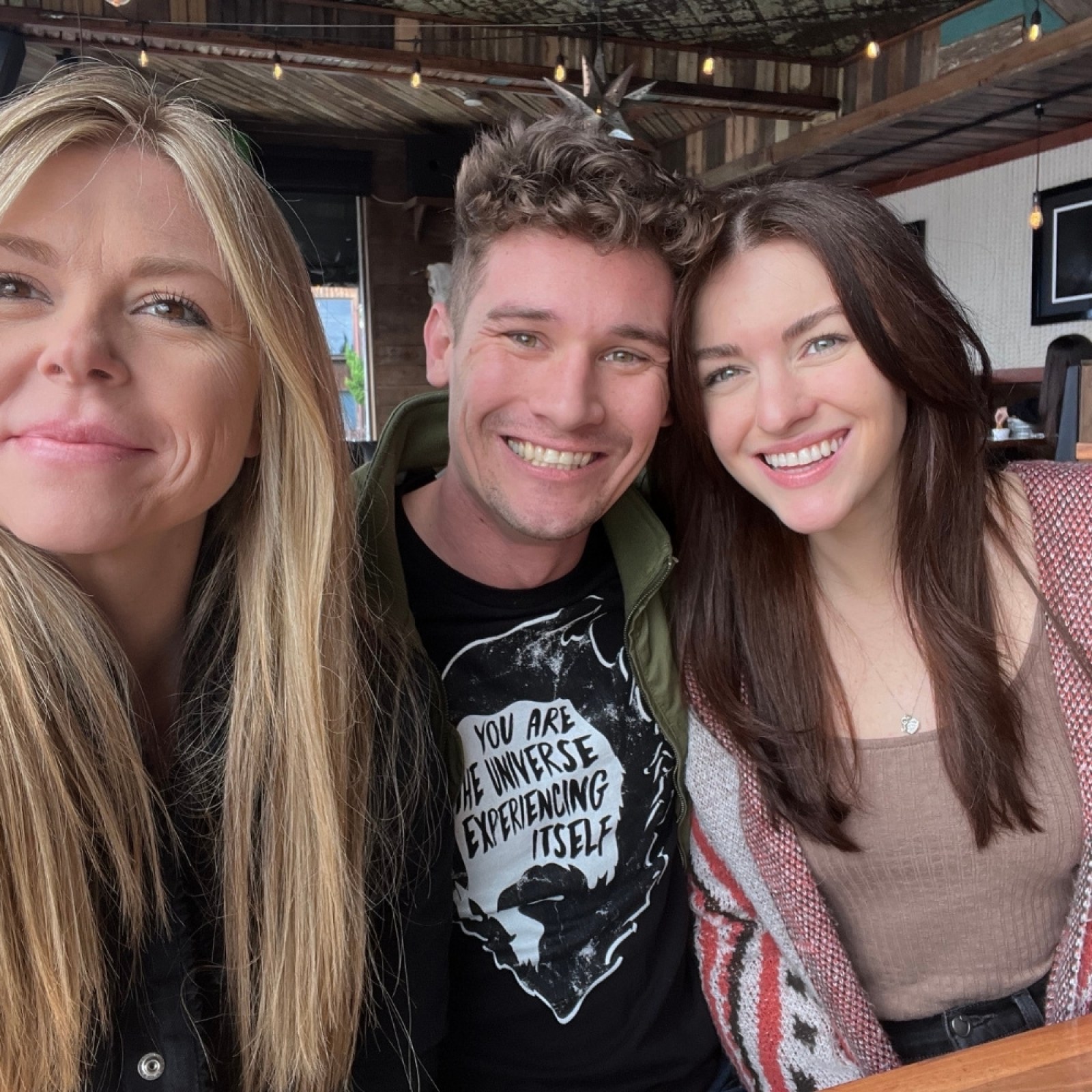
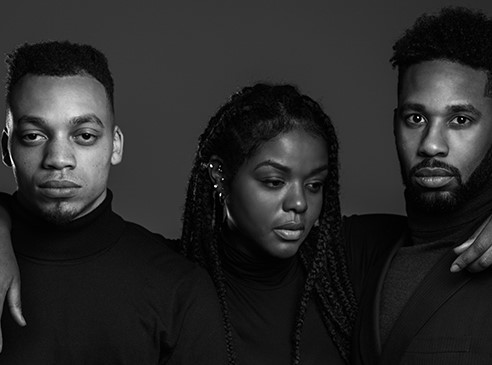

What's the Difference: Polyamory and Polygamy
Polygamy, Polyamory, Polygyny, Polyandry, and More
Video Chat: Polyamory Questions and Answers
More Than Two: Learning the Poly Lingo
Willow Smith Reveals That She is Polyamorous
Interview: Perfect Polyamorous Relationship
Jessica O'Reilly TED Talk: Monogamish and New Rules of
Marriage
Three Way Relationship: Beautiful Thing
Poly Coach: Non-Monogamy and Open Relationships
Willow Smith
Opens Up About Being Polyamorous
Another difference between the two is that polygamy does
tend to only refer to the act of a man having more than
one wife and it is, therefore, based on gender.
Polyamory is open to any mixture of numbers and genders
so it is just as common for a man to be in a
relationship with several women as it is for a woman to
be in love with several men. It should also be pointed
out that polyamory can of course involve people of the
same sex as well whereas this won't be possible with
polygamy due to its strong links to religion and
culture.
It is also generally true that polygamy has a tendency
to last longer like normal marriages, but with polyamory
it is more about the moment and living in it and this
means it may last for weeks, months or even years
depending on the people involved which is similar to
swinger couples or open relationships. The term "till
death do us part" certainly only applies to one and over
a lifetime the person involved in a polyamorous
relationship can have a number of partners whereas the
polygamist tends to be limited to only a few.


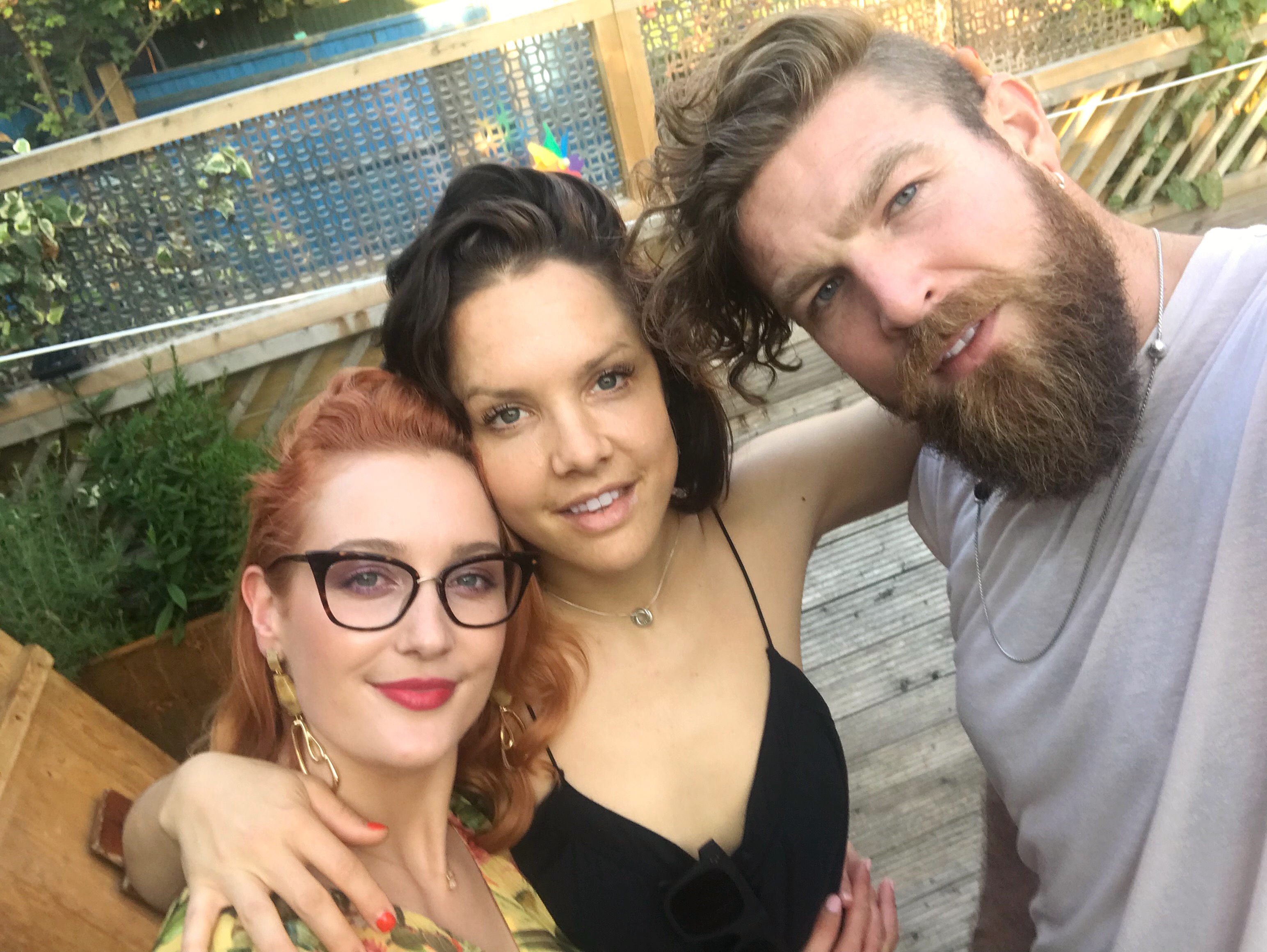
Video: What it's Like to Have an Open Relationship
Willow Smith:
Explains Why She Prefers Polyamory Relationships
What Happens at a Swinger
Sex Party?
Video: Should You Be Polyamorous?
Polyamory Society
More Than Two: Polyamory Myths
15 Honest Reasons Couples Choose to be Polyamorous
I Went To A Nudist Swingers Resort Without My
Girlfriend: Here's What Happened
Finally, it has to be said that people do tend to have
the point of view that there are cultural differences
between the two, but in actual fact this is not actually
the case. However, how both approaches are viewed can be
different. It is perhaps true that in certain cultures
and countries the idea of having more than one wife
would not cause a stir and indeed it is common practice,
but the idea of having more than one relationship is one
that may indeed be frowned upon. There is also the idea
that even in countries or cultures where polygamy is not
allowed that there is a better understanding of it
whereas the same cannot be said about multiple
relationships at the one time.
So those are the key differences between polyamory and
polygamy and you should know see that they are not as
similar as you may have initially thought and indeed
those that practice either of them would certainly agree
that they have entirely different approaches to life.
However, it is fair to say that a number of people will
still have the same negative opinion about both
lifestyles, but due to now having a better understanding
of the two maybe you will be able to accept why some
people do indeed wish to live this type of lifestyle.
[Source: Your Tango]
8 Signs Polyamory is Right for You
Psychology Today: 7 Forms of Non-Monogamy
Video: Should You Be Polyamorous?
Interview: Perfect Polyamorous Relationship
Polyamory Society
Meet the Married Polyamorous Throuple
Lisa Ling: Spotlight on Young Polygamist Family
Willow Smith:
Explains Why She Prefers Polyamory Relationships
More Than Two: Polyamory Myths
15 Honest Reasons Couples Choose to be Polyamorous

What is
Hotwifing?
Hotwifing is the modern fetish term for wife-sharing. A hotwife is a married woman who has sexual relationships
outside of her marriage, with the full knowledge and
consent of her husband, who himself doesn’t have
affairs. Wife-sharing arrangement or act of carrying out
such affairs. The idea of hotwifing comes from the
concept of a husband showing off and sharing his “hot
wife.” The non-monogamous arrangement is related to a
cuckolding fetish, and many (but not all) husbands in
such a relationship refer to themselves as cuckolds or
hot-wifers.
The difference between hotwifing and cheating is consent.
In a hotwife arrangement, the husband is fully aware and
supportive of his wife’s affairs. In many cases, one
spouse or the other even gains sexual arousal from the
arrangement due to voyeurism, the thrill of doing
something taboo, or an infidelity and/or jealousy
fetish. Hotwifing isn’t exactly swinging because
only one partner is having extramarital sex. One of the
most important aspects though is that both partners are
open and trusting with each other. It only works if both
partners are mutually onboard.
Obscure Words for Infidelity
Definition and Description of a Fling
Info: Monogamy
Gay Men in Open Relationships
Different Types of Affairs
Info: My Spouse is Gay
Cuckhold or Adulteress
Lesbian Couples and Emotional Cheating
Info: On the Downlow
What is an
Orgy?
Originally, an orgy was a secret ceremonial rite held in
honor of an ancient Greek (Dionysus) or Roman (Bacchus)
deity and usually characterized by ecstatic singing and
dancing. In general, it can be defined as drunken
revelry or a sexual encounter involving many people or
excessive sexual indulgence.
In modern
usage, an orgy is a sex party where guests freely engage
in open and unrestrained sexual activity or group sex.
Swingers' parties do not always conform to this
designation, because at many swinger parties the sexual
partners may all know each other or at least have some
commonality among economic class, educational attainment
or other shared attributes. Some swingers contend that
an orgy, as opposed to a sex party, requires some
anonymity of sexual partners in complete sexual abandon.
Other kinds of "sex parties" may fare less well with
this labeling.
Participation in an "orgy" is a common sexual fantasy,
and group sex targeting such consumers is a subgenre in
pornographic films. Similar activities include group
sex, harems, gang bangs, bukkake, bacchanalia, and bdsm.



Wikipedia:
Orgy
Orgy Rules: Do's and Don'ts
What Happens at a Swinger
Sex Party?
Group Sex: An Etiquette Guide
Wikipedia: Gang Bang
A gang bang is a situation in which several people
engage in physical sexual activity with one specific
individual sequentially or at the same time. That
specific individual is the central focus of the sexual
activity. For example, it could be one woman surrounded
by several men or a man with multiple women. Rather than
serial couplings by two people, the gang bang is defined
by the number and simultaneity of the various sex acts,
such as vaginal, anal or oral sex or double penetration
or triple penetration.
The largest gang bangs are sponsored by pornographic
film companies, and recorded, but a gang bang is not
unusual in the swinger community. It is more often
considered to have multiple men and one woman, while a
so-called "reverse gang bang" (one man and many women),
which can be seen in pornography. Male-on-male and
female-on-female gang bangs also happen. Gang bangs are
not defined by the precise number of participants, but
usually involve more than three people and may involve a
dozen or more.
By contrast, three people engaged in sex is normally
referred to as a threesome, and four people are normally
referred to as a foursome. Gang bangs also differ from
group sex, such as threesomes and foursomes, in that
most (if not all) sexual acts during a gang bang are
centered on or performed with just the central person.
Wikipedia: Polyamory
Meet a Polyamorous Thrupple
Reasons To Try Dating A Couple
Showtime Series: Polyamory
Interview with Polyamorous Thrupple
Research: Health and
Wellness of Consensual Non-Monogamy
Types of Polyamory
What Open
Relationships Have to Offer
Three Way Relationship: Beautiful Thing
Willow Smith Reveals That She is Polyamorous
Glossary of Polyamory Terms
I Am in a Polyamorous Relationship
HOME
QUEER CAFE
│ LGBTQ Information Network │ Established 2017 |